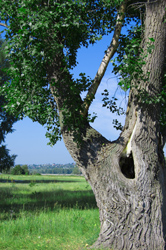Overactive immune response reduced by tree extracts
Many plants contain extractives that give protection against pathogens that attack cells and tissues. Scientists in the EU funded project CERBERUS aimed to harness the mechanisms of cellular protection afforded by these bio-active compounds. Properties tested for included anti-microbial and preservative action as well as overall health promotion. At the University of Westminster in London, project scientists specifically concentrated on the ability of plant extracts to depress the damaging effects of cellular defence mechanisms. Their particular target was the action of neutrophils, white phagocytic cells that swarm to a site of infection. One of the most common human body defences, the downside of neutrophil action is an oxidative burst that can produce reactive oxygen species (ROS) including hypochlorous acid produced by the enzyme myeloperoxidase. An overactive inflammatory response is thought to be responsible for many types of cellular damage and may even lead to the formation of certain forms of tumour. The team designed trials to test the effectiveness of extracts of Populus deltoides knots and bark extracts to inhibit the production of ROS. Thirty six extracts were compared with reference compounds hydroxymatairesinol and nitecapone known to have strong anti- myeloperoxidase action. The results were very promising and the extract with the strongest action displayed comparable activity to the synthetic drug nitecapone and had more effect than the natural plant lignan hydroxymatairesinol. The results of this study show that wood extracts can modulate immune responses. Advantages for the biopharmaceutical industry could be the development of natural drugs with minimal side-effects that have anti-oxidant and anti-tumour properties.



